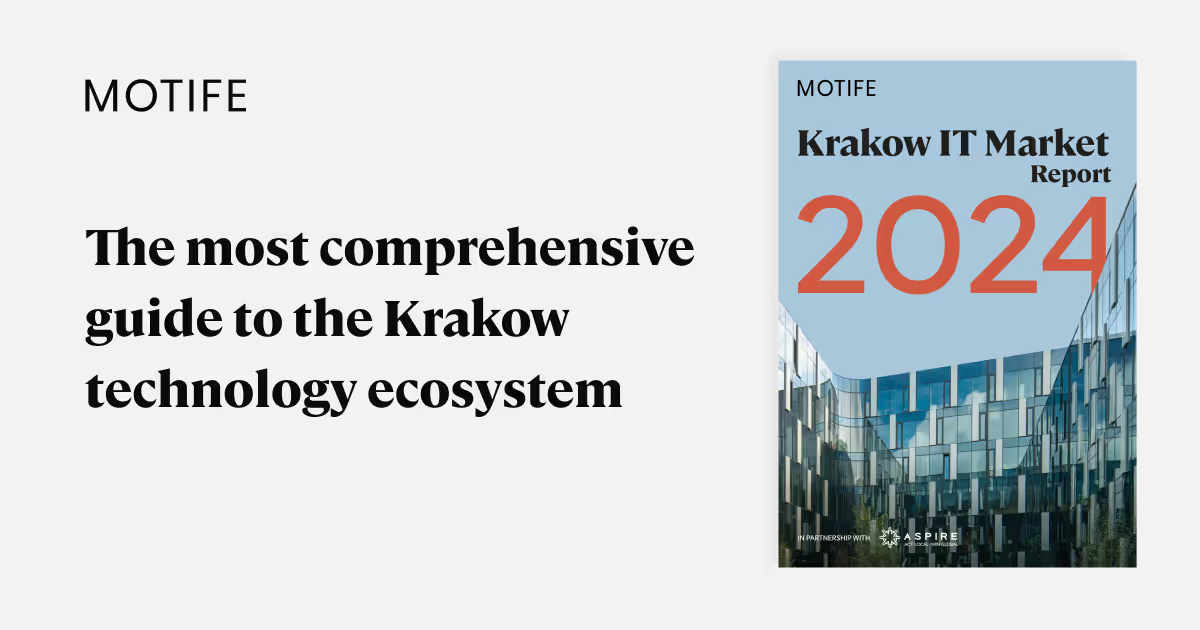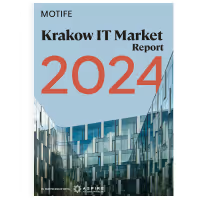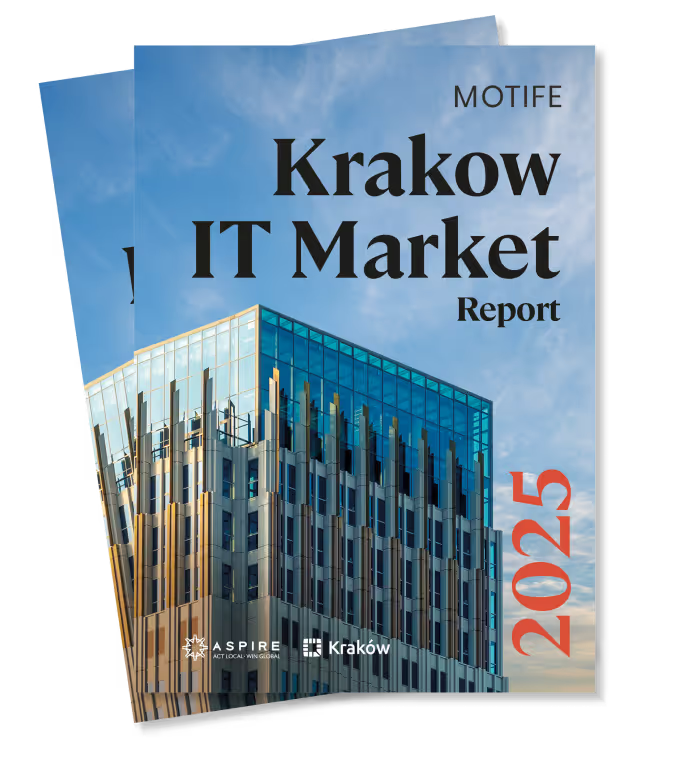This article is useful if you are:

Companies hiring in Poland are attracted to several key factors. Poland's renowned engineering and technical-oriented academic institutions educate developers known for their expertise. The country's expanding IT talent pool, with over 16,000 ICT graduates annually and talent influx from neighboring countries, offers a diverse range of skilled professionals. Moreover, Poland's relative cost savings, coupled with high-quality talent, make it an appealing choice. The cultural fit, with a majority of Poles proficient in English, facilitates seamless collaboration.
Furthermore, the favorable business environment and stability in Poland are additional factors that attract companies. As a member of the EU and NATO, Poland provides security and stability for businesses operating within its borders.
The country's commitment to fostering a supportive ecosystem for international companies is evident in its infrastructure, legal frameworks, and investment incentives. This combination of a robust talent pool, cost advantages, cultural fit, and favorable business conditions solidifies Poland's position as a top choice for companies seeking to employ IT talent and drive their success in the ever-evolving global market.

When expanding operations to Poland and recruiting IT talent, companies face a decision: manage the process internally or engage a local consultant. While internal management may seem feasible, partnering with a local consultant offers distinct advantages. They bring expertise in navigating the Polish talent market, familiarity with the local business landscape, and the ability to facilitate fast talent onboarding.
Additionally, past experiences and challenges may drive companies to seek the support of a local consultant. With their knowledge, networks, and proven track record, a local partner can streamline recruitment, ensure compliance, and increase the chances of success in the Polish IT talent market.
Check out also: MOTIFE setup and operations services

When choosing a do-it-yourself approach companies can choose from two options. Either to directly engage Polish independent contractors or the path of company registration in Poland.
The organization establishes a company in Poland in this scenario. This option gives full control over the process and then operations, and prepares for a potential significant growth.
At the same time, setting up and running a subsidiary in a new country can be expensive and time-consuming. Especially when relying mostly on its own team. It requires an understanding of local laws and regulations (e.g. knowledge of labour law in Poland) and may require significant ongoing management. This would be advised to companies who have internal teams with the know-how and capacity to do it.
When recommended?
Companies can hire Polish contractors directly as an alternative do-it-yourself option. In this case, a service contract is signed directly between a contractor and a foreign company. This is a very good option when a company is looking to hire only a handful of specialists. Also, the company needs to be able to coordinate the HR and payment process.
In addition, this approach requires the contractors to be comfortable with such a setup. It also usually excludes hiring on employment contracts and allows for B2B contractors only. Potential risks include limited control and compliance.
This option allows for cost savings, by avoiding payment for a local HR provider or payroll provider. At the same time, it won’t allow for any local benefits like private health care or life insurance. In this option, companies can also use one of the global payroll providers to facilitate the process. However, it does come with an additional cost.
When is it recommended?

Most companies choose to use a local partner to support them in the execution of the “Poland strategy”. Typically, they would choose one of the following options.
Working with a local partner allows hiring without establishing an entity. Your partner may act as an umbrella company, Employer of Record (EOR), or Professional Employer Organization (PEO). The external organization employs staff on behalf of the company and provides additional services like benefits administration and HR.
No local subsidiary is established to avoid operating costs. This approach helps reduce administrative burden and assures that tax, payroll, and compliance with local laws are handled. Most of all it is faster, easier, and cheaper to set up than any other option.
Local partners can also help understand local practices and regulations. Some of them offer additional benefits packages to the team members. EOR services can be also useful when a company has a subsidiary in Poland but would like to offset the risk of engaging individuals on B2B contracts.
When is it recommended?
Check out: MOTIFE EOR (Employer of Record) services
In the softlanding model, a local partner provides end-to-end support in establishing and running a legal entity in Poland. The partnering company will provide staff e.g. HR, Finance, Legal, processes e.g. finance, HR, templates, tools, recommendations related to vendors, best practices, etc.
The staff engagement will scale depending on the needs of the organization. This allows to significantly reduce the cost of setting up a subsidiary in Poland. In particular, the cost of learning, remote supporting functions in a new market, and employing full-time supporting functions in Poland.
There is still an overhead associated with global supporting functions involved in the process. In this model, a company has complete control over its operations in Poland.
When is it recommended?
Check out: MOTIFE setup and operations management
Build, Operate, Transfer is a model in which teams and organization are incubated by a local partner and later transferred to the company. This option is an enhancement to the soft landing practice. In the BOT model involvement from the global supporting functions is not necessary. Generally, in this model the engagement of the in-house staff I reduced to a minimum.
When is it recommended?
Check out: MOTIFE Build, Operate, Transfer (BOT) model
In this approach, a partner company provides independent contractors. They are either recruited from the market or already available in the partner’s team. They are usually fully dedicated to a client and can eventually be hired by them. This approach provides greater flexibility, and scalability, and offsets all risks to a partner. It also may allow for a faster start.
There are certain downsides to this solution. For example, the fact that the team doesn’t have a sense of belonging to the client’s organization. Another is compliance risks the setup may implicate or continuity and knowledge retention issues.
When is it recommended?
Learn more about the tech ecosystem in Krakow and Poland by downloading the Krakow IT Market Report 2024

If you are interested in setup services or advisory, contact us at MOTIFE to learn more.
If you are looking for interesting job opportunities in tech companies in Krakow and remote, check out open roles at motife.com/jobs.
Explore essential data on Poland's tech landscape.


View all job offers

Download the report

Read the full client story
